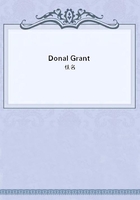
第147章
WHATEVER lady Arctura might decide concerning the restoration of the chapel to the light of day, Donal thought it would not be amiss to find, without troubling her, what he could of its relation to the rest of the house: and it favoured his wish that Arctura was prevailed upon by the housekeeper to remain in bed the next day. Her strong will, good courage, and trusting heart, had made severe demands upon an organization as delicate as responsive. It was now Saturday: he resolved to go alone in the afternoon to explore--and first of all would try the door beside the little gallery.
As soon as he was free, he got the tools he judged necessary, and went down.
The door was of strong sound oak, with ornate iron hinges right across it. He was on the better side for opening it, that is, the inside, but though the ends of the hinges were exposed, the door was so well within the frame that it was useless to think of heaving them off the bearing-pins. The huge lock and its bolt were likewise before him, but the key was in the lock from the other side, so that it could not be picked; while the nails that fastened it to the door were probably riveted through a plate. But there was the socket into which the bolt shot! that was merely an iron staple! he might either force it out with a lever, or file it through! Having removed the roughest of the rust with which it was caked, and so reduced its thickness considerably, he set himself to the task of filing it through, first at the top then at the bottom. It was a slow but a sure process, and would make no great noise.
Although it was broad daylight outside, so like midnight was it here and the season that belongs to the dead, that he was haunted with the idea of a presence behind him. But not once did he turn his head to see, for he knew that if he yielded to the inclination, it would but return the stronger. Old experience had taught him that the way to meet the horrors of the fancy is to refuse them a single hair's-breadth of obedience. And as he worked the conviction grew that the only protection against the terrors of alien presence is the consciousness of the home presence of the eternal: if a man felt that presence, how could he fear any other? But for those who are not one with the source of being, every manifestation of that being in a life other than their own, must be more or less a terror to them; it is alien, antipathous, other,--it may be unappeasable, implacable. The time must even come when to such their own being will be a horror of repugnant consciousness; for God not self is ours--his being, not our own, is our home; he is our kind.
The work was slow--the impression on the hard iron of the worn file so weak that he was often on the point of giving up the attempt.
Fatigue at length began to invade him, and therewith the sense of his situation grew more keen: great weariness overcomes terror; the beginnings of weariness enhance it. Every now and then he would stop, thinking he heard the cry of a child, only to recognize it as the noise of his file. He resolved at last to stop for the night, and after tea go to the town to buy a new and fitter file.
The next day was Sunday, and in the afternoon Donal and Davie were walking in the old avenue together. They had been to church, and had heard a dull sermon on the most stirring fact next to the resurrection of the Lord himself--his raising of Lazarus. The whole aspect of the thing, as presented by the preaching man, was so dull and unreal, that not a word on the subject had passed between them on the way home.
"Mr. Grant, how could anybody make a dead man live again?" said Davie suddenly.
"I don't know, Davie," answered Donal. "If I could know how, I should probably be able to do it myself."
"It is very hard to believe."
"Yes, very hard--that is, if you do not know anything about the person said to have done it, to account for his being able to do it though another could not. But just think of this: if one had never seen or heard about death, it would be as hard, perhaps harder, to believe that anything could bring about that change. The one seems to us easy to understand, because we are familiar with it; if we had seen the other take place a few times, we should see in it nothing too strange, nothing indeed but what was to be expected in certain circumstances."
"But that is not enough to prove it ever did take place."
"Assuredly not. It cannot even make it look in the least probable."
"Tell me, please, anything that would make it look probable."
"I will not answer your question directly, but I will answer it.
Listen, Davie.